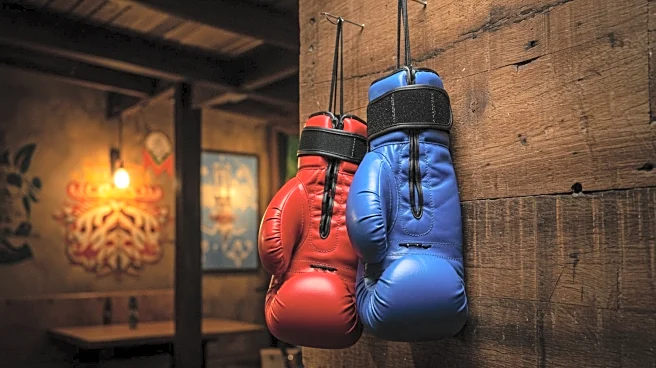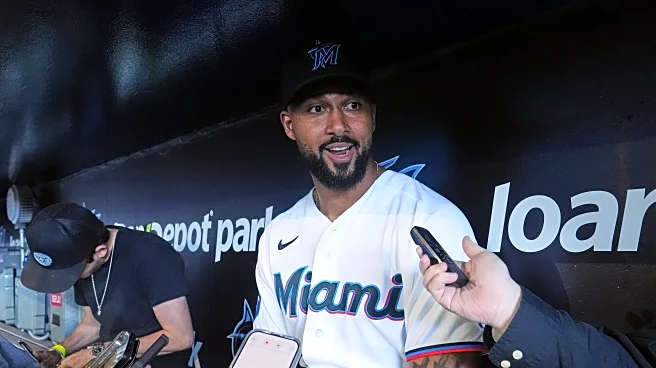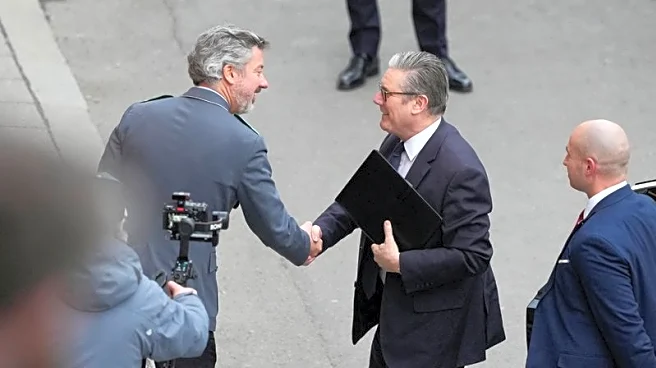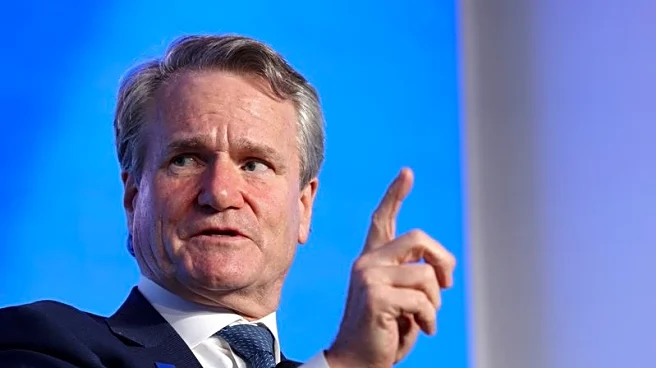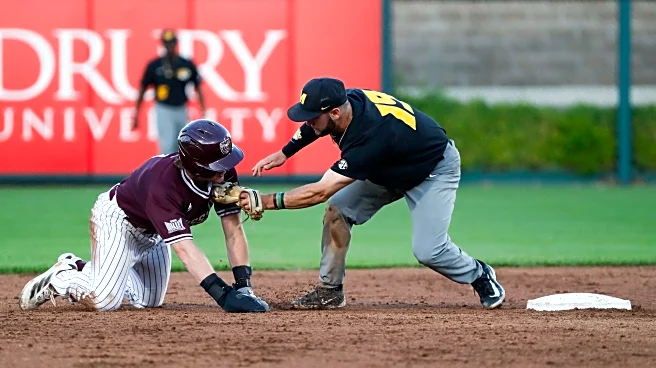What's Happening?
Julio César Chávez Jr., a former WBC middleweight world champion, has been deported to Mexico following his arrest in the United States for overstaying his visa and providing false information on a green card application. Chávez was detained by U.S. immigration officials in Los Angeles shortly after his fight with Jake Paul. He was deported due to a warrant for his arrest in Mexico related to alleged arms and drug trafficking and connections to the Sinaloa Cartel. The Department of Homeland Security reported that Chávez overstayed a tourist visa and submitted fraudulent statements in his permanent residency application. Mexican President Claudia Sheinbaum confirmed his deportation, stating that Chávez would face charges in Mexico.
Why It's Important?
The deportation of Julio César Chávez Jr. highlights ongoing issues related to immigration enforcement and the intersection of sports and criminal activities. Chávez's case underscores the challenges faced by individuals with high-profile careers who become entangled in legal issues. The involvement of a prominent sports figure in alleged cartel activities may impact public perceptions of the sport and its athletes. Additionally, this case may influence U.S.-Mexico relations, particularly in terms of cooperation on criminal investigations and extraditions. The situation also raises questions about the effectiveness of immigration policies and the scrutiny applied to visa applications.
What's Next?
Chávez is expected to face legal proceedings in Mexico concerning his alleged cartel ties and criminal activities. The Mexican authorities will likely continue their investigation into his connections with the Sinaloa Cartel. The outcome of these proceedings could have significant implications for Chávez's future, both personally and professionally. In the U.S., this case may prompt further examination of immigration enforcement practices and the vetting process for visa and green card applications. Stakeholders in the sports industry may also consider measures to address the reputational risks associated with athletes involved in criminal activities.
Beyond the Headlines
Chávez's deportation and alleged criminal ties bring attention to the broader issue of drug trafficking and organized crime in Mexico. The case may contribute to ongoing discussions about the role of sports figures in societal issues and the responsibilities they hold as public figures. It also highlights the potential for sports to intersect with criminal activities, raising ethical questions about the influence of money and fame in shielding individuals from legal consequences. The long-term impact on Chávez's career and legacy remains uncertain, as does the potential for reform in immigration and criminal justice systems.
